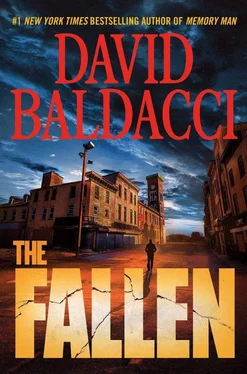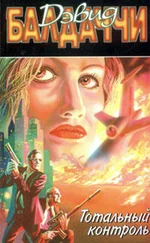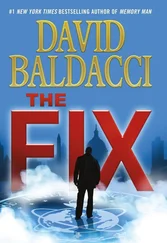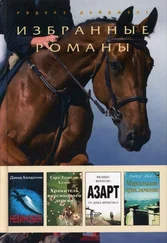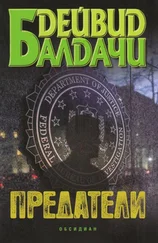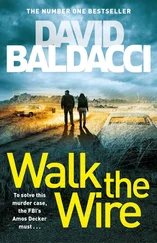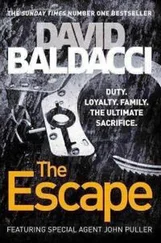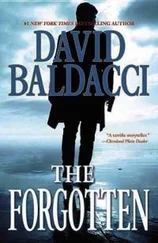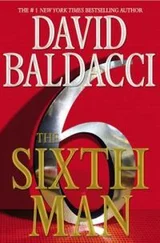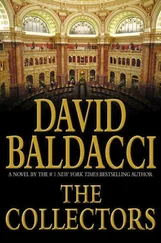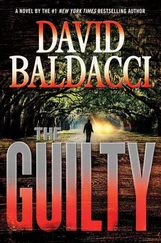“That’s bullcrap!”
Green looked at Lassiter, who was staring at him openmouthed. “Those can’t be his prints on my badge. It’s impossible.”
Decker said, “The day you threw your badge down and I picked it up? I saw it was smudged with prints, and something else that I realized later was... flour. Bond told me he liked to bake at all hours. He got flour on my badge too when he was checking it out. Agent Kemper also informed me that traces of flour were found on your badge. Now, I don’t know if we can match it to the flour in Bond’s kitchen but we really don’t have to since we have your prints.”
Green said nothing. He just glared at Decker.
“The thing is, Detective, if you’re going to the trouble of killing someone, you really need to sweat the details,” added Decker.
Green turned on Kemper. “You bitch! You took my badge without a warrant. That makes it inadmissible.”
Kemper held up a piece of paper.
“I got a warrant, signed, sealed, and delivered.”
“Based on what?”
“Based on the fact that we checked Alice Martin’s phone records. Dan Bond called her the night he was killed. Then she immediately called Fred Ross’s number. Shortly after that, you received a call from Fred Ross. And an hour after that, Dan Bond was killed. So our theory is that Bond called Martin and told her something that alarmed her, and she phoned Fred Ross to have it taken care of. And he dialed you up to do it.”
“But what could have alarmed Alice?” said Lassiter. “She’s just an old lady who used to teach Sunday school.”
Decker said, “She’s actually a lot more than that. I believe Bond was killed because he recognized that the sound he’d heard the night the two DEA agents’ bodies were discovered was Alice Martin’s recently broken quad cane hitting the pavement. Maybe she walked past his house the day he was killed, said hello to him, and so he knew the sound was being made by Martin’s cane. He might have later called and asked her what she was doing out that night. That was not good, because Bond might tell somebody else, like me.”
Green barked, “I want a lawyer.”
“Yeah, well, maybe your lawyer will convince you to talk so you get life instead of the needle,” said Decker.
Kemper looked at her men. “Cuff him, read him his rights, and take this scum to to the holding cell downstairs.”
The men moved forward and handcuffed Green.
“You don’t know who the hell you’re messing with, Decker!” the detective shouted as he struggled helplessly.
“Funny, I was going to say the same thing to you.”
“You have no reason to protect anyone,” said Decker.
He was sitting in an interrogation room at police headquarters with Lassiter on one side of him and Kemper and Jamison on the other.
Across from them was Alice Martin sitting very primly in her seat. She didn’t answer.
“We checked the big game freezer in your basement,” said Decker. “The one presumably your husband used to store his venison in. But you didn’t just keep deer meat in there. Whoever put Beatty and Smith in there wasn’t all that careful. Their DNA has been recovered by the DEA.” He glanced meaningfully at Kemper. “And that particular federal agency is out for blood. So, I say again, you have no reason to protect anyone.”
She lifted her gaze to his. “How can you possibly know that?”
“Convince me otherwise.”
She smoothed out her long skirt and rested her hands in her lap.
“I have children and grandchildren, and soon I’ll have great-grandchildren. I have to think of them.”
“How did you even get mixed up with something like this?” asked Lassiter.
“I outlived what little money I had a long time ago. I’m eighty-eight and in reasonably good health. Once you’ve reached this age, your odds of living another ten years or so are pretty good. I did not wish to do so in abject poverty. I’m tired of never going anywhere. Of never having anything.”
“Your kids couldn’t help?”
“My children are barely making ends meet themselves. I have Social Security and that’s it. And even here that does not go a long way.”
“Lots of people have only Social Security, and they don’t join a drug cartel to earn more money,” pointed out Kemper.
“I did not join a drug cartel!” she said sharply.
“Then why don’t you tell us what you did do,” said Lassiter.
“I merely looked the other way,” she said, her gaze perhaps symbolically averted from them. “When things began to happen on our street.”
“What sorts of things?” asked Decker.
“When certain equipment was brought into the house where those men were found and in the one next to it. When unsavory types started coming and going at all hours.”
“They were pill presses,” said Decker. “And they picked this street because it only had three people living on it and one of them was blind.”
“And one of them was also in on it,” added Lassiter. “Fred Ross. Was he the one who approached you and asked you to look the other way?”
Martin nodded. “That’s why they picked this street. Like you said, Dan was blind. Fred was just a horrible person. And I... ” Her voice trailed off. “If I hadn’t gone along they would have just killed me. What was I supposed to do?”
“Call the cops?” said Jamison.
“The cops?” she scoffed. “Fred told me that half the force is in on it.”
“That’s bullshit!” exclaimed Lassiter. “You could have come to me, Alice. I would have done something about it.”
“What did they offer you?” Decker asked.
“Compensation.”
“How much?”
“Two thousand dollars a week. In cash. And I really had to do nothing. Just... look the other way.”
Jamison said, “No, you let them put bodies in your freezer.”
Martin shivered at this comment but said nothing in reply.
Decker said, “That’s a lot of money. What did you do with it?”
“I... bought things. I started eating food other than ramen noodles and mac and cheese. I fixed items in my house. I sent some money to my children. I bought my grandkids presents for the first time in years. I put the rest away in a trunk in my house to leave to them.”
“So you were outside the night the bodies were transported?” said Lassiter.
Martin nodded. “They... they took the bodies from my freezer and put them in Fred’s van. Then they drove it to the house and unloaded them there. They’d cleared out their equipment earlier. I went outside because... well, I didn’t want to be inside when they brought the bodies out. And I wanted to make sure that no one was around, even though they had this drone thing flying over to do that. They usually did that when they were moving people or things in and out of there, just to make sure the coast was clear. Fred told me they had wanted to wait until it was very late at night to do it, but they figured with the storm coming in that no one would be out and about, and they wanted to get it done sooner rather than later. Anyway, they pulled the van into the carport and brought the bodies in through the side door. Afterward, they drove the van back to Fred’s and left on foot. I walked back to my house before the rain started.”
“That’s when I heard your cane clunking and scraping against the pavement,” said Decker. “I’m glad I never really described the sounds I heard to you when we spoke before. You would have been tipped off. But Dan Bond heard it too. He confronted you about it, didn’t he?”
For the first time, tears glimmered in Martin’s eyes.
“He was out on his front porch the other day when I passed by. I called out to him and he said, ‘Good morning.’ But then he looked kind of funny-like. I went home. And later he called me and wanted to know why I was outside that night. He wasn’t accusing me, really. But he said that you had asked him about the sound, that you considered it important. And he was trying to remember where he’d heard it before. I never even thought about my cane making those noises. I just used it outside to walk without falling. I should have gotten it repaired.”
Читать дальше
